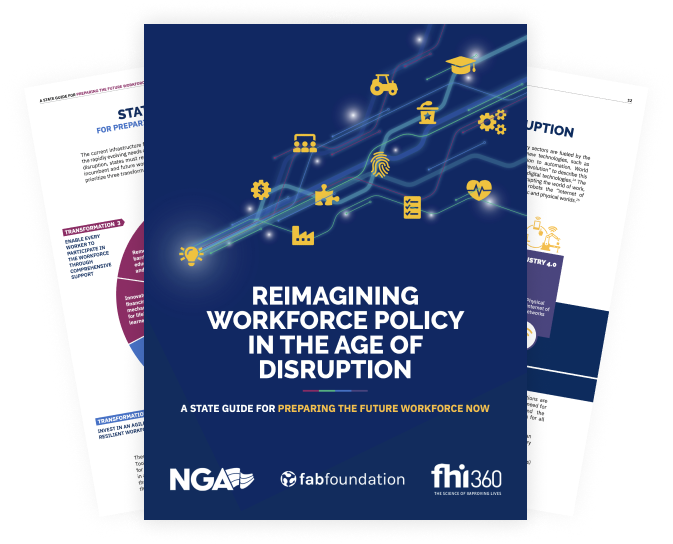Remove obstacles to participating in work and learning by closing gaps in access to medical and mental health care, including for those recovering from substance use disorders. The state builds an ecosystem where every individual, including those with disabilities and a history of substance abuse, are able to realize financial self-sufficiency, and to recapture the dignity of being a working member of society.
State Program Examples
-

Montana
Medicaid Expansion
In 2019, Montana Governor Bullock signed into law HB 0658, thereby expanding the state’s Medicaid program to serve nearly 100,000 low income adults. The expansion will cost the state approximately $16 million over the next two years, which will be paid for by a new tax on Montana hospitals.
-

New Hampshire
Recovery Friendly Workplace Initiative
New Hampshire found that 66 percent of the costs of untreated addiction in the Granite State were due to lost productivity and absenteeism at work. In response, Governor Sununu led the Recovery Friendly Workplace Initiative to incentivize employers to provide support to New Hampshire residents in recovery. The state secured a U.S. Department of Labor grant aimed at helping those in recovery reenter the workplace, and as a match, allocated $1 million to educate employers in evidence-based practices that demonstrably reduce substance misuse in the workplace, offer specialized training for human resources personnel, and promote the hiring of those undergoing treatment. The State Workforce Innovation Board also granted funds to the initiative and served as navigators for local employers to serve workers in recovery. Other states have developed similar programs and applied their Vocational Rehabilitation funds to serve those in recovery and reentering the workforce.




















